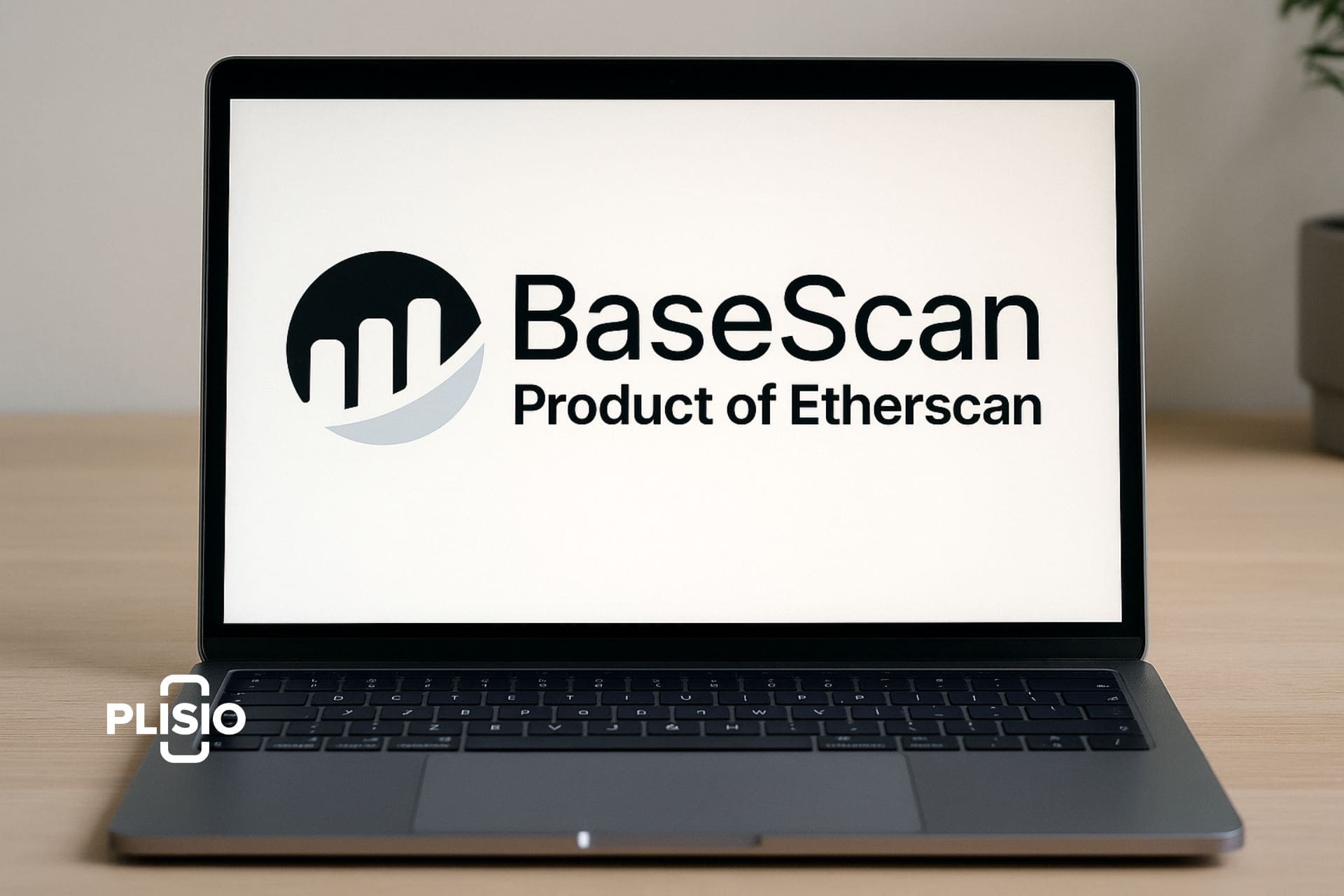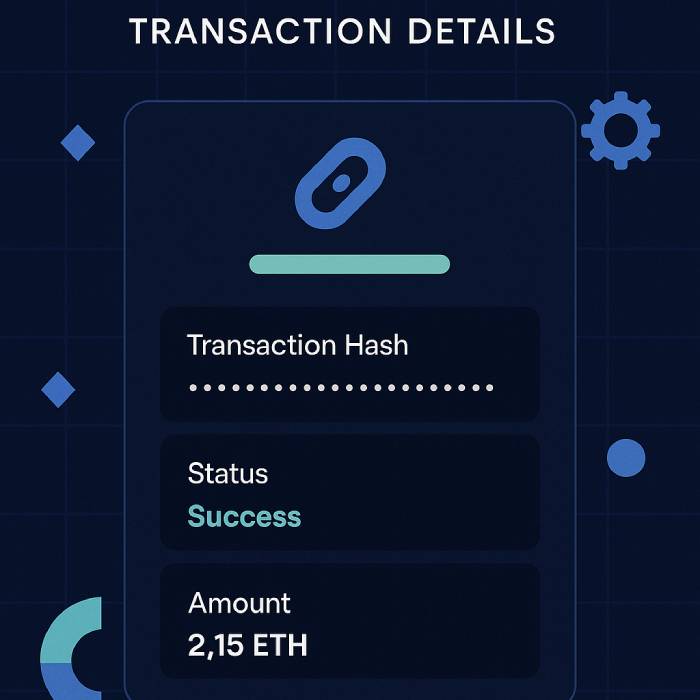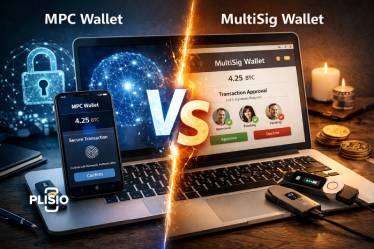Basescan: The Ultimate Guide

Ever wondered how to truly understand what’s happening on a blockchain? Whether you’re new to crypto or an experienced developer, having the right tools can make all the difference. That’s where Basescan comes in — your gateway to clarity and confidence on the Base network.
At Plisio, we believe transparency and control are key to secure crypto transactions. Tools like Basescan give users the power to track payments, audit smart contracts, and explore wallet activity with ease. In 2025, when the Base network now processes over 10 million transactions per day and holds more than $4.7 billion in total value locked (TVL), the ability to clearly understand on-chain data is more important than ever.
Let’s take a closer look at what makes Basescan an essential tool in the Web3 world.
What is Basescan?
Basescan is a powerful block explorer and analytics platform designed for the Base network. It allows users to track and analyze transactions, view wallet balances, interact with smart contracts, and monitor gas prices. As one of the leading tools in the blockchain ecosystem, Basescan provides an intuitive interface for accessing and understanding the vast amounts of data stored on the Base network.
Block explorers like Basescan play a crucial role in the blockchain ecosystem. They transform complex, coded information into human-readable formats, making it accessible for everyday users, developers, and analysts. By providing transparency and insight into blockchain activities, block explorers help users verify transactions, conduct research, and ensure the integrity of the blockchain. This transparency is fundamental to the trust and functionality of decentralized networks.
Compared to other block explorers, Basescan stands out due to its robust feature set and user-friendly interface. While other explorers like Blockchair and TokenView offer similar functionalities for different blockchains, Basescan is specifically optimized for the Base network, providing real-time updates and comprehensive data analysis. Its advanced tools and intuitive design make it a preferred choice for users looking to delve deep into the Base network’s activities and gain actionable insights.
2025 Snapshot: The Growth of the Base Network
As of mid-2025, the Base network has experienced exponential growth:
- Over 526 million addresses created and indexed
- Daily active addresses exceeding 1 million, with peak days hitting 1.3 million
- Average of 13 million transactions per day
- Network TPS (transactions per second) regularly sustained at 84 TPS
- Target goal for 2025: 1 billion total transactions and >200 TPS
- TVL (Total Value Locked) surpassed $4.7 billion, placing Base in the top 6 L2 networks

With this level of growth, having a reliable and easy-to-use analytics platform like Basescan is vital for keeping up.
"In the current state of L2 infrastructure, Basescan offers an unmatched level of transparency for Base network users," says Dr. Laura Kim, blockchain researcher and advisor to multiple DeFi protocols. "As Base scales, real-time insights into transaction flows and smart contracts become essential, especially for developers and financial institutions."
How Basescan Helps You Verify Transactions with Confidence and Detail
Basescan operates by continuously retrieving and presenting data from the Base network in an organized and easily accessible manner. The platform relies on a sophisticated system to ensure that users can search for and view real-time blockchain data. This process begins with data retrieval, where Basescan uses an API to query the Base network for the latest transactions, wallet balances, and smart contract interactions. Once the data is retrieved, it is processed and indexed, allowing users to quickly access the information they need through a user-friendly interface.
At the core of Basescan’s data retrieval process are RPC (Remote Procedure Call) endpoints, nodes, and the RPC protocol. RPC is a communication protocol that allows one piece of software to request data or services from another. In the context of Basescan, the platform uses RPC calls to interact with the Base network’s nodes—specialized computers that store the blockchain’s data. These nodes act as servers, responding to the RPC requests sent by Basescan. RPC endpoints are essentially the access points through which Basescan sends its queries to the nodes, enabling the retrieval of the latest blockchain data.
Once the data is retrieved from the nodes, Basescan stores it in a structured, relational database. This method of data storage ensures that the information is well-organized and can be quickly accessed when needed. The database is continuously updated with new data from the Base network, maintaining an up-to-date record of all transactions, wallet balances, and smart contract activities. By organizing the data in this way, Basescan ensures that users can efficiently search for and analyze the information, providing a seamless experience for those exploring the Base network.
Key Features of Basescan
Basescan offers a comprehensive suite of features designed to provide users with in-depth insights into the Base network:
- Transaction Tracking: Get detailed insights into transaction status, timestamps, amounts, and fees.
- Wallet and Token Exploration: Just enter a wallet address to view balances, token holdings, and transaction history.
- Smart Contract Interaction: Dive into contract source code, view history, and even execute functions directly.
- Gas Price Tracking: Monitor real-time gas fees to optimize the cost of your transactions.
- Developer Tools and APIs: Leverage Basescan’s APIs to integrate real-time blockchain data into your own dApps.
"Transparency isn't just a buzzword — it's the foundation of trust in crypto," notes Anand Vora, product strategist at Plisio. "With Basescan, users and merchants can verify on-chain actions in seconds. It's a tool we often recommend to our clients when they want visibility over their crypto payments and partners."
Using Basescan
Basescan provides a clean, user-friendly interface that makes navigating blockchain data straightforward. Here’s how you can get started:
- Search for a Transaction: Type in the TXID or hash and instantly view details like processing time, transferred amount, and sender/receiver info.
- Check Wallet Balances: Enter a wallet address and get a full view of ETH, ERC-20, and ERC-721 token holdings, along with transaction history.
- Explore Smart Contracts: Search for a contract address, read the source code, and interact directly via Web3 tools like MetaMask.
- Set Up Alerts: Log in, go to your Watchlist, and get real-time notifications for wallet activity, token movements, or contract events.
Advanced Uses of Basescan
For traders and analysts, Basescan offers even more value:
- On-Chain Analysis: Review token flows, liquidity trends, and user behavior to inform trading strategies.
- Whale Tracking: Monitor the biggest wallets and spot early signs of major market moves.
- Scam Detection: Identify suspicious activity through audit history, token movement patterns, and red flags like rapid token minting.
"In volatile markets, the ability to verify movements of large wallets or detect unusual patterns gives professionals a distinct edge," says Marcus Levin, crypto analyst and founder of OnChainAlpha. "Basescan provides the kind of clarity that traders and institutions depend on."
These tools give you the power to stay ahead in a fast-moving ecosystem — whether you’re a casual user or a professional.
In Conclusion
With Base processing over 13 million transactions per day in 2025 and striving for 1 billion transactions by the end of the year, transparency is more critical than ever. Whether you’re sending crypto payments with Plisio or tracking smart contract deployments, Basescan helps you see everything clearly.
It brings transparency, insight, and confidence to your experience on the Base network.
Want to go deeper into crypto? Explore with Basescan. Want to get paid in crypto? Let Plisio handle the rest.




